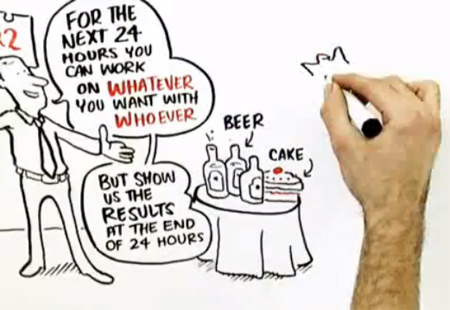
Jul 25, 2016
I’ve written here before about Malcolm Gladwell’s fascinating book Outliers, published in 2008. This year another book on talent, improvement, and mastery was published, Anders Ericsson and Robert Pool’s Peak: Secrets from the New Science of Expertise. Anders Ericsson, importantly, is one of the pioneers and top experts in this area of psychology, and it was partly on Ericsson’s work that Gladwell make his conclusions.

Anders Ericsson
Unfortunately, Ericsson says, Gladwell made some leaps that are misleading and, in some cases, inaccurate. The general principal that it takes a great deal of practice to become a world-class talent at something remains, and Ericsson reiterates that there aren’t exceptions, people who become masters without practice at things that require a lot of work for other people to learn. Phrases like “natural talent” contain an embedded error.
However, there are several important points where Ericsson disagrees with Gladwell’s conclusions–and since those conclusions were based on Ericsson’s work, these merit some attention! Here are some of the key points from Ericsson’s response:
- 10,000 hours is an arbitrary number. The amount of time mastery takes will depend on who’s doing the practice, what kinds of practice they’re doing, who you compare them to, what thing they’re trying to master, what you consider “mastery,” and other factors.
- There’s nothing in that research that implies that anyone can become a master at any chosen activity after putting in 10,000 hours–the research just shows that people who do achieve mastery put in a great deal of practice. However, there is compelling support for the idea that practically anyone can become excellent at practically anything: see “Do you have enough talent to become great at it?“
- The type of practice is crucial: it’s deliberate practice, and it has to be for the specific skill in question
- There’s no limit to how good we can get with further practice, however. There’s not a point where we “achieve mastery” and can consider ourselves “done.”
You can read Ericsson’s more detailed response here, on Salon.com. The article is adapted from that new book I mentioned, Peak.
Like this:
Like Loading...

Mar 14, 2011

The Royal Society for the encouragement of Arts, Manufactures and Commerce (RSA) posted a video recently of a talk author and speaker Daniel Pink gives about motivating other people. To be clear, my writing on this site is mainly about motivating ourselves, which is a different kind of thing, but I’m not against learning about motivating others when the opportunity comes up, especially if we can learn more about motivating ourselves in the process.
Pink’s talk offers some ideas that are pretty surprising if you haven’t run across them yet. One is research that shows people performing worse in tasks that require thinking and creativity when offered especially high monetary rewards than they do when they’re offered more modest monetary rewards. Sounds backwards, doesn’t it? And it’s true that if you offer higher bonuses for digging longer ditches, you’ll probably get longer ditches–yet if you try to offer higher bonuses for coming up with better ideas, you’re likely to be less well off than you started. This appears not to be an isolated finding, either, but rather something that comes up in study after study in psychology, sociology, and economics.
If money isn’t a good motivator for complex behavior, what is? Pink makes the case that it’s three things:
- Autonomy. If you get to choose what you’re doing, you become much more engaged and therefore more productive: see my first article on flow for a related phenomenon.
- Mastery. We naturally like getting better at things.
- Purpose. If our only reason for doing something is getting paid, we’re much less likely to do it well.
Of course, here we’re talking about the effects of bonuses and such: it’s not the same if we’re talking about money for basic living expense. People have to make a living for a start, at which point they can start thinking about satisfying work rather than simply avoiding starvation.
The video illustrates Pink’s talk with entertaining cartoons and a (to me) distracting practice of writing what he just said as quotes in with the cartoons. To view it, click here: http://www.youtube.com/watch?v=u6XAPnuFjJc .
Thanks to Lon Prater for the link.
Like this:
Like Loading...




